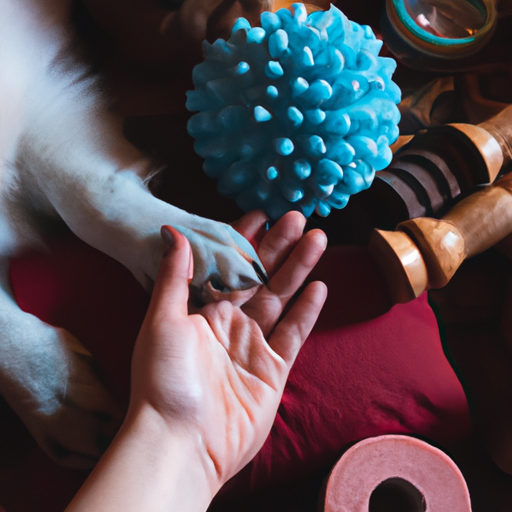Understanding Your Dog’s Separation Anxiety
Just like humans, dogs too have feelings. They experience joy when you come home, sadness when you don’t pay attention to them, and anxiety when you are away. Separation anxiety in dogs is a serious condition that needs your attention, care, and patience. You can see signs of this anxiety when your dog starts behaving differently. They may start barking excessively, show restlessness, or start destroying objects. You might also notice changes in their eating habits or irregularities in their bathroom routine.
Identifying the Triggers
Not all dogs react to the same triggers. Some might be anxious due to a change in the environment, while others might be reacting to the absence of a specific person. It’s crucial for you, as their caregiver, to understand what triggers their anxiety.
- Environmental changes: This includes moving to a new house, a new person or another pet joining the family.
- Absence of a person: Dogs often form strong bonds with their caregivers. If that person is suddenly absent, the dog might show signs of anxiety.
- Age-related anxiety: Older dogs might develop separation anxiety due to cognitive dysfunction syndrome (CDS).
Implementing Changes in Routine
After identifying the triggers, it’s time to set a new routine. It’s like setting a new rhythm for your dog to dance to. This routine should be consistent and predictable so that your dog feels a sense of security. Here are some steps you can follow:
- Create a safe space: This space could be a room or a particular spot where the dog feels safe and comfortable.
- Practice departures: Gradually increase the time you spend away from the dog. Start with short departures and then increase the length.
- Distract the dog: You can use toys or treats to distract the dog when you are leaving.
Seeking Professional Help
Sometimes, despite your best efforts, your dog might continue to show signs of separation anxiety. It’s important to remember that it’s not your fault and it’s okay to seek help. A professional dog trainer or a veterinarian can provide you with the right guidance and treatment plan. They might suggest therapy or medications that can help manage your dog’s anxiety.
| Professionals | Contact |
|---|---|
| Dog Trainer | [Link to Contact] |
| Veterinarian | [Link to Contact] |
Using Medications and Therapies
In some cases, medications might be required to treat severe cases of separation anxiety. Anti-anxiety drugs can help calm your dog and make them more receptive to training. Therapies, like desensitization and counter-conditioning, can also be beneficial. However, it’s paramount to consult with a veterinarian before administering any medication or therapy to your dog.
Frequently Asked Questions
Q: Can separation anxiety be cured completely?
A: In most cases, with consistent training and patience, it can be managed effectively.
Q: How long will it take to see improvements in my dog’s behavior?
A: It depends on the severity of the anxiety. It could take weeks to months for noticeable improvements.
Q: Can I leave my dog alone if they have separation anxiety?
A: It’s best not to leave your dog alone for long periods. If you must, consider doggy daycare or a pet sitter.
Remember, your persistent love and care are the best medicine for your dog’s anxiety. Because in the end, all they really want is to be with you.



